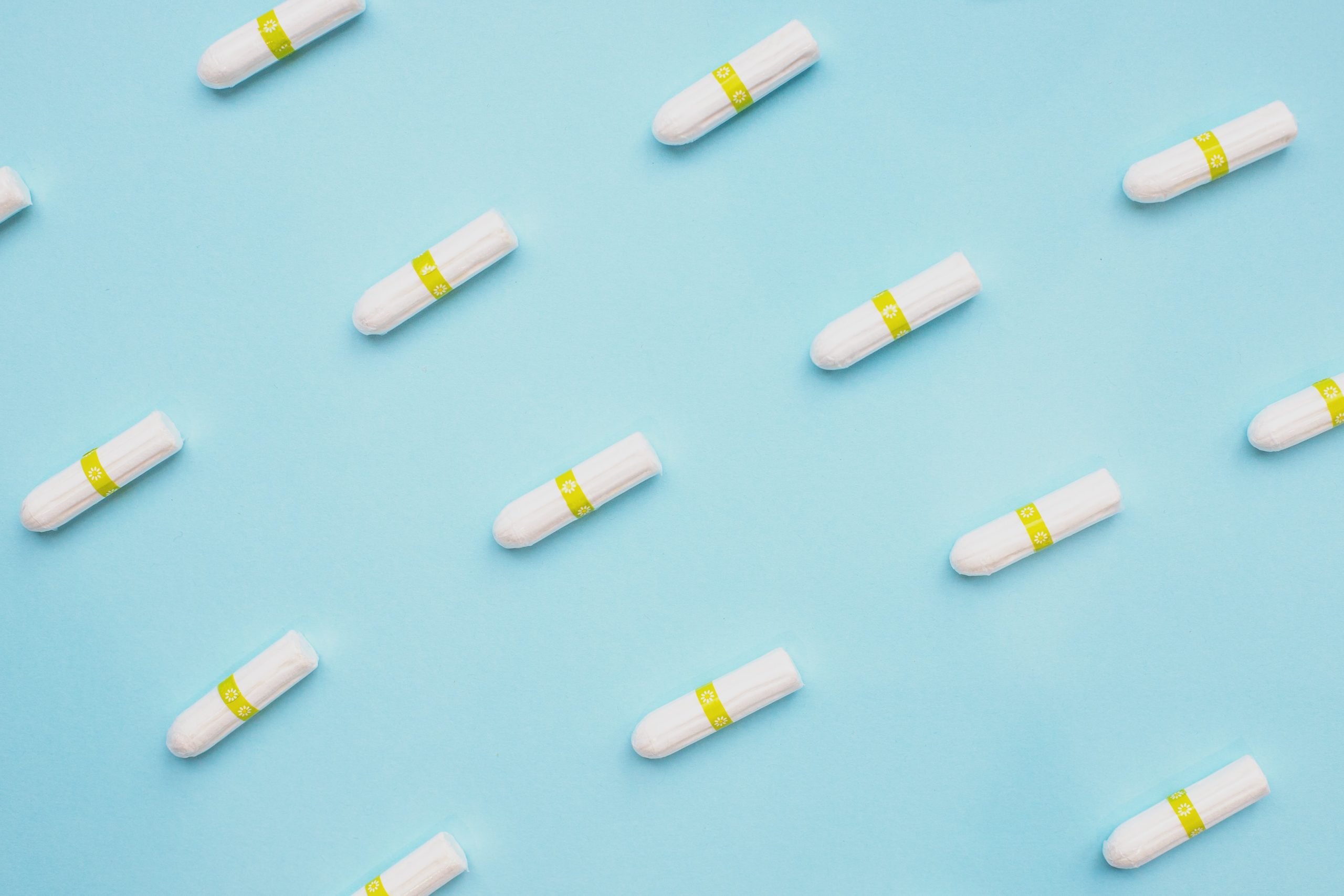7 dangerous chemicals found in everyday mainstream tampons
The level of harmful substances and chemicals in most standard mainstream tampons can be disconcerting (to put it lightly). There are seven main chemicals that are present in many of the big brands you might be familiar with. For us here at Riley, now is the perfect time to switch to organic, sustainable period products that are better fo your body and better for the planet.
Are there harmful chemicals in mainstream tampons?
Yes! The sad truth is that some mainstream tampons can contain a plethora of harmful additives, chemicals, and substances that can do much more harm than good to your body. From rayon to chlorine, the chemicals found in over-the-counter tampons can have a litany of negative impacts on your general health and well-being, and some are even carcinogenic. In fact, a 2020 study found that there can be up to 24 hormone disrupting chemicals in period products. Let’s take a closer look at some of the chemicals in tampons and why you need to avoid them.
7 chemicals in tampons
Rayon
Made from purified cellulose, rayon is a type of artificial silk that is converted into a soluble compound within tampons. Although rayon is highly absorbent, it is one synthetic material that has been linked to an increase in Toxic Shock Syndrome. Using high-absorbency tampons with rayon may lead to an increased risk of TSS, which is a serious bacterial infection that can even be life-threatening.
Dioxin
Dioxin is a chemical that is a direct product of chlorine processing. Studies show that dioxin is extremely dangerous and may even be cancer-inducing in humans. Although there’s no “safe” level of dioxin exposure, it is a compound that is commonly found in many tampon products.
Dioxin has also been linked to hormone disruption and immune imbalance, so it’s another substance that you should avoid at all costs.
Non-organic cotton
Cotton that is not certified organic has been genetically engineered. Genetically engineered cotton is pesticide and herbicide-resistant, so these compounds are unable to affect its growth. This is a big problem because it means that more pesticides and herbicides can be sprayed on the cotton, which means they’re much more likely to be present in the cotton within tampons. Certain pesticide residues consist of Procymidone, which can increase your risk of cancer.
Fragrance
Scented tampons smell good because of the chemical soap that is added during the manufacturing process. But as is the case with beauty products, companies are not required to disclose which ingredients they have included to give tampons their “fragrance.” Research shows that when “fragrance” is listed as an ingredient, the product contains harmful phthalates up to 75% of the time. Phthalates are linked to a range of health complications, including breast cancer, infertility, and diabetes.
Chlorine
Believe it or not, the chemical that is used to clean swimming pools is also included in tampons. Chlorine is used as part of the bleaching process, which keeps your tampon white. As a result, chlorine produces dioxins that may enter your body and stay for a long time. Granted, there are only trace amounts of dioxins, but they can stay in your body for up to eleven years, which is something that we all wish to avoid.
Bisphenol-A (BPA)
Bisphenol-A (BPA) is a hormone-disrupting chemical that interferes with how hormones send messages throughout your body. Even small levels of BPA can lead to a range of health issues, including breast cancer and early puberty in girls. It may also lead to an increased risk of diabetes and obesity.
Additives
Some tampon brands include a wide range of additives in their products, including the likes of myreth-3-myristate, synthetic zeolites, alcohol ethoxylates, glycerol esters, polysorbate-20, and a range of unnamed anti-bacterial agents. As they come in direct contact with your genitals, these additives can lead to various issues, most notably skin rashes and irritations.
Is there an organic alternative?
Fortunately, you don’t have to rely on chemical-laced tampons for your monthly period. Riley’s period products are made of 100% certified organic cotton, are biodegradable and environmentally friendly and are completely free from toxins, bleach, and other harmful chemicals. Plus, they’re delivered straight to your door when you need them. On top of this, Riley also donates €1 from every box sold to fighting period poverty.
Discover Riley’s range of organic and innovative period products today and say goodbye to the dangers of mainstream tampons that are filled with harmful chemicals and substances.

